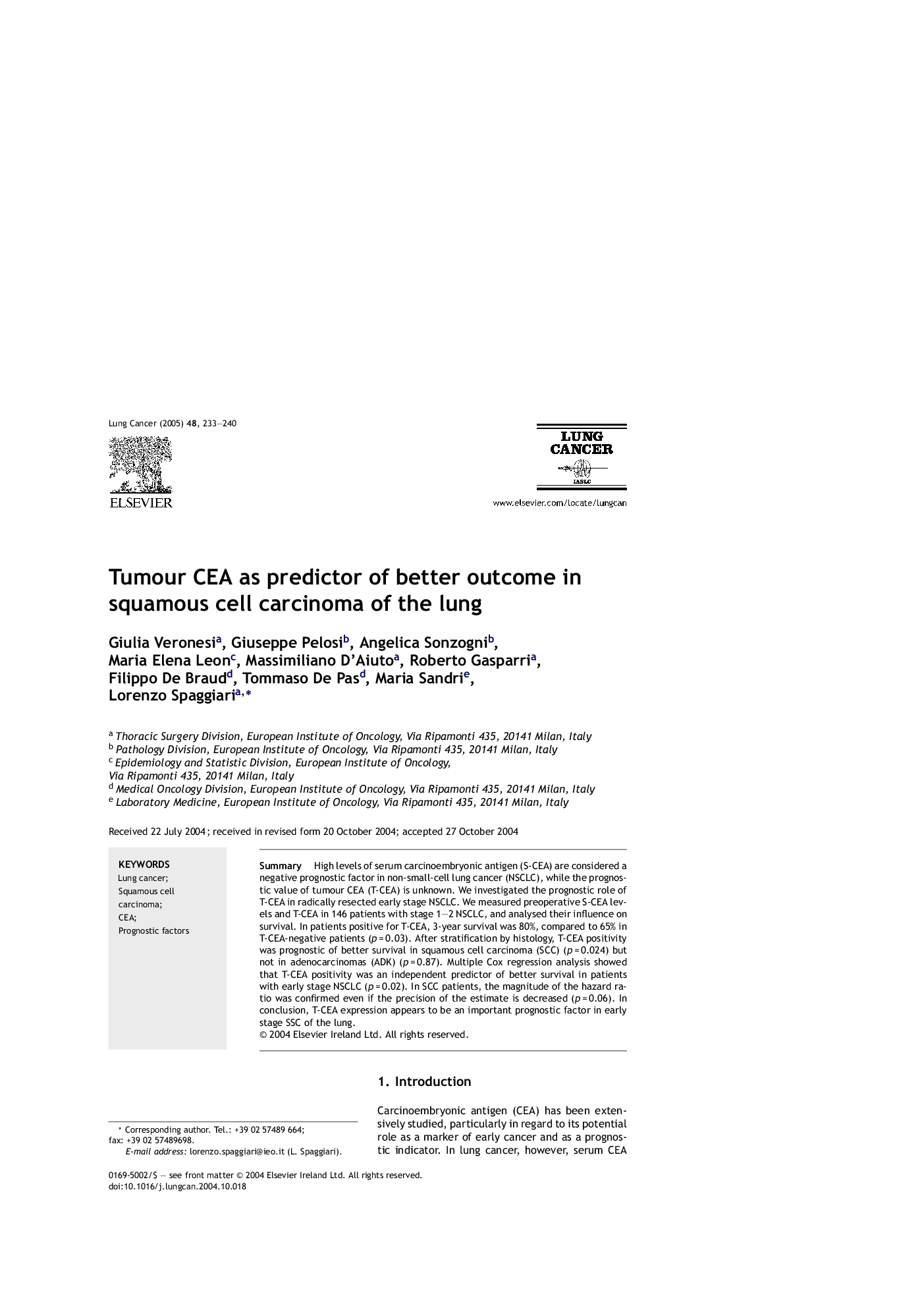| Article ID | Journal | Published Year | Pages | File Type |
|---|---|---|---|---|
| 10912178 | Lung Cancer | 2005 | 8 Pages |
Abstract
High levels of serum carcinoembryonic antigen (S-CEA) are considered a negative prognostic factor in non-small-cell lung cancer (NSCLC), while the prognostic value of tumour CEA (T-CEA) is unknown. We investigated the prognostic role of T-CEA in radically resected early stage NSCLC. We measured preoperative S-CEA levels and T-CEA in 146 patients with stage 1-2 NSCLC, and analysed their influence on survival. In patients positive for T-CEA, 3-year survival was 80%, compared to 65% in T-CEA-negative patients (p = 0.03). After stratification by histology, T-CEA positivity was prognostic of better survival in squamous cell carcinoma (SCC) (p = 0.024) but not in adenocarcinomas (ADK) (p = 0.87). Multiple Cox regression analysis showed that T-CEA positivity was an independent predictor of better survival in patients with early stage NSCLC (p = 0.02). In SCC patients, the magnitude of the hazard ratio was confirmed even if the precision of the estimate is decreased (p = 0.06). In conclusion, T-CEA expression appears to be an important prognostic factor in early stage SSC of the lung.
Related Topics
Life Sciences
Biochemistry, Genetics and Molecular Biology
Cancer Research
Authors
Giulia Veronesi, Giuseppe Pelosi, Angelica Sonzogni, Maria Elena Leon, Massimiliano D'Aiuto, Roberto Gasparri, Filippo De Braud, Tommaso De Pas, Maria Sandri, Lorenzo Spaggiari,
